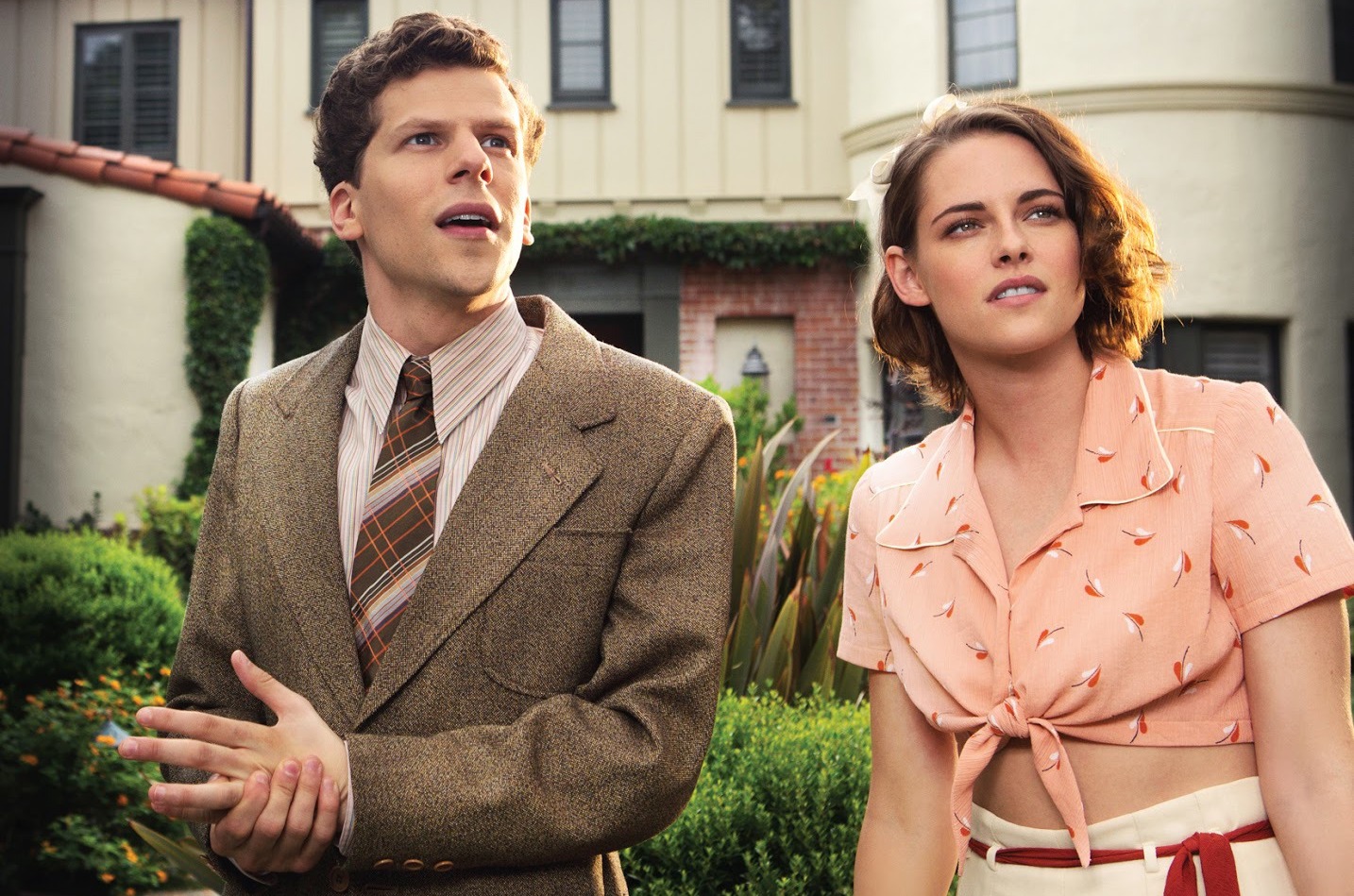Café Society
 for some violence, a drug reference, suggestive material and smoking.
for some violence, a drug reference, suggestive material and smoking.
Reviewed by: Jim O'Neill
CONTRIBUTOR
| Moral Rating: | Offensive |
| Moviemaking Quality: |
|
| Primary Audience: | Adults |
| Genre: | Romance Comedy Drama |
| Length: | 1 hr. 36 min. |
| Year of Release: | 2016 |
| USA Release: |
July 15, 2016 (limited—5 theaters) July 22, 2016 (expanded) July 29, 2016 (wide) DVD: October 18, 2016 |
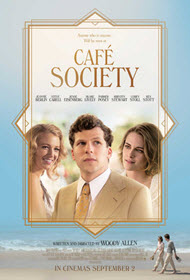

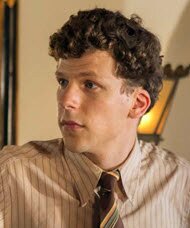
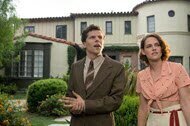

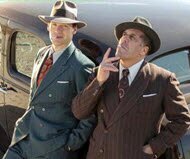
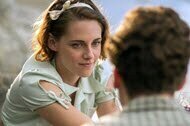
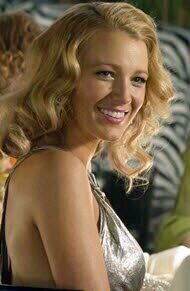

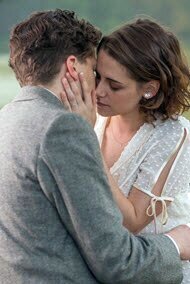
FORNICATION and ADULTERY in the Bible
PURITY—Should I save sex for marriage? Answer
How can I deal with temptations? Answer
What are the consequences of sexual immorality? Answer
TRUE LOVE—What is true love and how do you know when you have found it? Answer
Woody AllenWoody Allen, American film director, screenwriter. Films include: “Vicky Cristina Barcelona,” “Small Time Crooks,” “Anything Else,” “Match Point,” “Midnight in Paris,” “Scoop”. Faith: Atheism. Although raised in a Jewish family, he describes himself as being a “Militant Freudian Atheist.”
| Featuring |
|---|
|
Jesse Eisenberg … Bobby Kristen Stewart … Vonnie Blake Lively … Veronica Steve Carell … Phil Stern Sheryl Lee … Karen Stern Todd Weeks … Oscar Paul Schackman … Al Jodi Carlisle … Maid Richard Portnow … Walt Corey Stoll … Ben Dorfman See all » |
| Director |
|
Woody Allen |
| Producer |
|
Gravier Productions Perdido Productions |
| Distributor |
The 1930s may not have been the best of times in American history, but you would not believe that watching the period comedy “Café Society.” In Woody Allen’s 46th film, the good life is alluring, ubiquitous and almost always within reach.
Allen tends to set his psychological romances in sophisticated places. No wonder his movies garner immense praise in New York and Los Angeles yet induce shrugs everywhere else. His well-heeled and well-housed characters are not so much threatened by the outside world (there is no mention of breadlines and only a brief one of Nazi Germany), as they are by their own neuroses which make them see all challenges, no matter how small—remember the spider in the bathroom in “Annie Hall”?—as existential threats.
For a champagne comedy to tickle the senses, it needs to make bubbles and hold onto its fizz. Allen has given us Dom Perignon in the past, but here he hands us a Coca-Cola, which would be fine (I like “Animal House” as much as I like “Palm Beach Story”), but this Coke is lukewarm, flat and, despite the glittering costumes and sets, lacking in taste.
Bobby Dorfman (Jesse Eisenberg) moves from the Bronx to Hollywood, where he hopes his Uncle Phil (Steve Carell), a major talent agent, will help find him a job. Phil is too busy doing what agents do: telephoning, schmoozing, and name-dropping to tend to his nephew, but he does arrange for his secretary, Veronica (Kristen Stewart) to show Bobby around Hollywood, and help him acclimate to his new surroundings. Bobby is immediately smitten with Veronica, but, unbeknownst to him, she is having an affair with the married and much older Phil. It is odd that the domineering, controlling and all-knowing Phil would put these two together and not worry that a romance might bloom, but this plot is as thin as Phil’s linen suit. It may look good on the surface, but it does not wear well under a hot sun.
Ultimately, Veronica (“Vonny” for short) leaves Bobby for Phil, a case of choosing more bad over just plain bad. Stewart gives an admirable performance as the girl caught between two ill-equipped men. In the past, I considered Stewart an awkward and amateurish actress, but she comes alive here as a smart and sensitive neurotic (much like Diane Keaton in “Manhattan,” Mia Farrow in “The Purple Rose of Cairo,” and Barbara Hershey in “Hannah and Her Sisters”) who knows what will bring her fulfillment and peace, but, in the end, chooses a path that precludes happiness. Stewart conveys the anxiety and torment that comes from making a bad decision, and, even worse, from making no decision at all. Stewart does a commendable job, although a lot of the credit for her performance should go to the exquisite costuming by Suzy Benzinger who recreated the classic Chanel gowns and jewelry, and to the cinematography by Vittorio Storaro who surrounds Stewart with a halo-like light, assuring her of entrances that Rita Hayworth and Marlene Dietrich would envy.
Carell, on the other hand, is stifled when he should be stifling. He is no powerhouse teddy-bear like Broderick Crawford in “Born Yesterday” or megalomaniacal control freak like Burt Lancaster in “Sweet Smell of Success.” Carell, who can expose the soft underbelly of just about any meanie and make him sympathetic, comes across here as a cold bore and an insipid sipher. One wonders how those Hollywood names he drops—Ginger Rogers, Busby Berkely, Franchot Tone, Billy Wilder—would bother to take so much as a phone call from him.
Bobby is heartbroken by Veronica’s rejection, so he leaves Hollywood and returns to New York, where he becomes the manager of an El Morocco style night club, spending his evenings hobnobbing with and kowtowing to the shallow rich, the very thing that disillusioned him about Los Angeles. While working the club, he meets another Veronica (Blake Lively), a radiant blond in shimmering silver, who soon becomes Bobby’s wife. Lively adds some glow after Stewart departs the scene, but she is more mannequin than flesh and blood. And, unfortunately, she becomes a slate onto which Allen projects his political views. He has resorted to that tactic in several of his recent films, without developing or even backing up his comments, which come across as snarky and contribute nothing to the story. He is like the little boy with a rubber dart gun who shoots and then hides behind the couch. The second Veronica works in the mayor’s office and calls herself a “Liberal Democrat.” Yet, despite her progressive bona-fides, she is not beyond telling her Jewish date: “You people ARE pushy.”
Bobby’s brother, Ben (Corey Stoll) is a gangster who brings some needed comic relief to a tale that gets less and less humorous, but he also brings no shortage of mayhem and violence. Allen does not blend the danger and the absurdity of mob life the way he did so successfully in “Bullets Over Broadway.” Here, he settles for blithely contrasting the alluring night-life of the wise-guy with the daytime routine of tossing stoolies, debtors and noisy neighbors into cement graves. The crooks wear the same dapper suits and ties, even the same gold tie clasps, for taking out their dates as they do for taking out their foes.
Ben eventually goes to trial and to the electric chair for his crimes, but that chapter in the story is treated as lightly as all the others. Ben behaves as though he were Max Bialystock from “The Producers,” going off to a jail cell for one more comic adventure. He converts to Christianity right before his execution, citing Psalm 6, the prayer of distress, as his motivation. He also finds appeal, and perhaps salvation, in the Christian belief in an afterlife. His brother, Bobby, sees his point, musing that Judaism might want to consider the concept of life after death, “If we did, we might have more takers.” His mother, on the other hand, is not amused: “First a murderer! Now a Christian! What did I do to deserve this?” Unfortunately, Allen plays these themes for laughs, instead of casting his net into deeper waters. His other work reveals him to be interested in, even obsessed with, grander themes, but in “Café Society” the director, like his characters Bobby, Veronica 1, and Phil, have chosen the fluff over the heart of the matter.
Every Woody Allen movie has some unforgettable lines that are worth taking away, and this one does have a few:
“Live every day as though it were your last, and some day you’ll be right.”
“Socrates said that the unexamined life is not worth living, but the examined one is no bargain.”
“Life was written by a sadistic comedy writer.”
Yet, despite the occasional sharp joke, the dazzling Santo Loquasto sets and the even more dazzling jewelry, “Café Society” is more zirconium than diamond. Woody used to look to Ingmar Bergman or John Paul Sartre for inspiration. He has now shifted to Coco Chanel. Her influence is what gives the movie shape. The costumes, in fact, ARE the movie. Chanel once said: “Before you go out in the morning, take a good look in the mirror… and take one thing off.” Excellent advice! Allen should have listened to her. Instead, he has dressed his film to the nines, and, in doing so, has left us with something that is all couture and no substance. All that sparkles on the outside does not necessarily shine from within.
Violence: Moderate / Profanity: Moderate / Sex/Nudity: Moderate
See list of Relevant Issues—questions-and-answers.


PLEASE share your observations and insights to be posted here.
